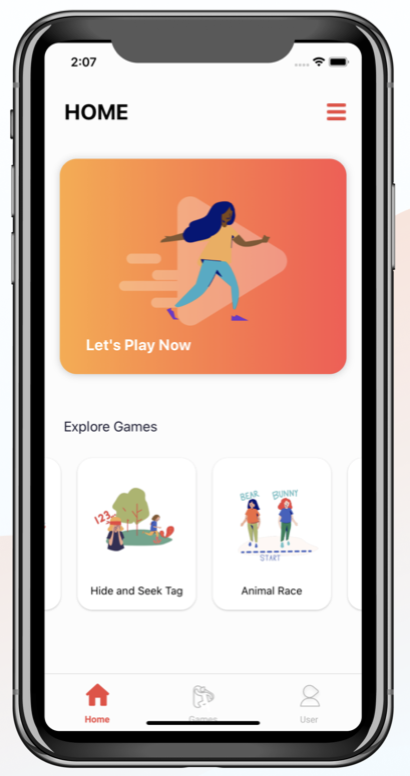Pittsburgh Team Wins Shape of Health Competition Video Game Aims To Boost Physical Activity of Young Girls
Karen HarlanWednesday, February 10, 2021Print this page.

A new game developed by Jessica Hammer of the Human-Computer Interaction Institute and Melissa Kalarchian of Duquesne University won first prize in a competition sponsored by the U.S. Department of Health and Human Services to create a video game that promotes physical activity and weight control.
The game, called Frolic, is designed to inspire girls with inclusive and active playtime and involve parents in supporting their daughters as they develop healthy habits. It is now available for free in the Apple App Store.
"Play can serve as a great way to boost physical activity and carries additional benefits for girls, such as socialization," said Kalarchian, associate dean for research and professor in the Duquesne University School of Nursing. "By helping girls ages 7 to 12 to become more active, Frolic can help them to form healthy habits to carry with them into adulthood."
The Frolic app initiates time for play by sending a notification to a parent's phone. If it is a good time to play, the child can then input some basic info about her surroundings, including whether she will be playing indoors or outdoors, the size of the space available, if she has any friends present, and if so, their abilities to move quickly.
Answering questions like "How active do you want to get?" helps the girls to think about the consequences different types of aerobic or strength training exercises can have on their bodies.
The basic situational data gathered each time the girl is able to play helps Frolic to recommend a few game ideas appropriate for her situation. Each game recommendation comes with step-by-step illustrated instructions in order to support girls of all abilities and enable everyone to have a great play experience.
In addition to inviting girls to participate in active playtime, Frolic is also designed to encourage parents to support their girls' healthy habits. Research shows that parents are less likely to encourage their daughters to be physically active when compared to the encouragement they show their sons. The app shows parents their daughter's activity data and encourages them to have productive conversations with their girls about their physical activity.
Frolic was one of ten entries to clear the first round of competition in the Shape of Health competition and advance to an in-person presentation in front of a panel of judges in Washington D.C.
"We gave a presentation and showed some demo clips of what we made so far. Then we had a really great discussion with the challenge team — we actually went 20 minutes over our allotted slot because the conversation was so vigorous and exciting," said Hammer, the Thomas and Lydia Moran Assistant Professor of Learning Science in the HCII and the Entertainment Technology Center. "They gave us a lot of great suggestions to incorporate into the game."
"We're confident it's unlike anything currently available and excited to share it with girls and parents," Kalarchian said.
Byron Spice | 412-268-9068 | bspice@cs.cmu.edu
